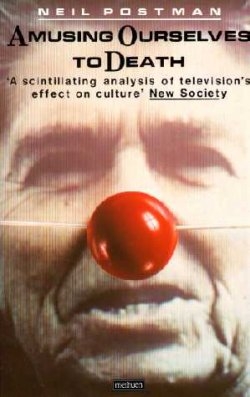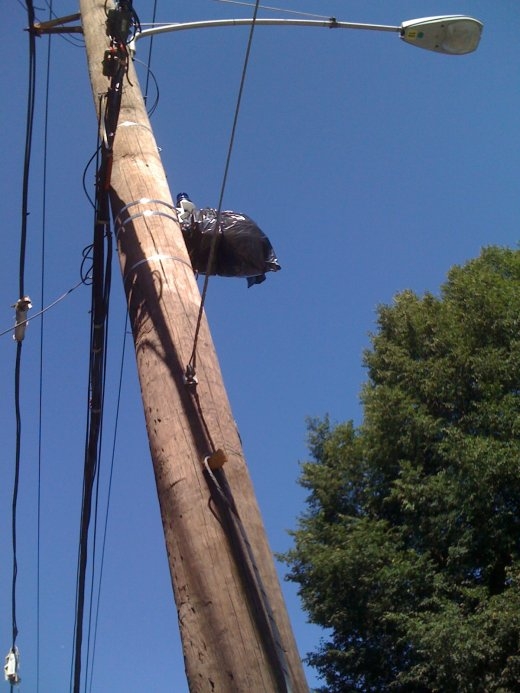
[via RECOMBINANT RECORDS]
WIKIPEDIA: The book originated with Postman’s delivering a talk to the Frankfurt Book Fair in 1984. He was participating in a panel on Orwell’s 1984 and the contemporary world. In the introduction to his book Postman said that reality was reflected more by Aldous Huxley‘s Brave New World where the public was oppressed by pleasure than Orwell’s 1984 where they were oppressed by pain. Postman distinguishes the Orwellian vision of the future, in which totalitarian governments seize individual rights, from the vision offered by Aldous Huxley in Brave New World, where people medicate themselves into bliss and voluntarily sacrifice their rights. Postman sees television’s entertainment value as a “soma” for the contemporary world, and he sees contemporary mankind surrendering its rights in exchange for entertainment. (Note that there is no contradiction between an intentional “Orwellian” conspiracy using “Huxleyan” means, which is an argument advanced in the later book  The Unreality Industry: the deliberate manufacturing of falsehood and what it is doing to our lives by Ian Mitroff and Warren Bennis [New York: Carol Pub. Group, 1989]. Postman evidently did not disagree, since he provided a blurb for this book.)
The Unreality Industry: the deliberate manufacturing of falsehood and what it is doing to our lives by Ian Mitroff and Warren Bennis [New York: Carol Pub. Group, 1989]. Postman evidently did not disagree, since he provided a blurb for this book.)
The essential premise of the book, which Postman extends to the rest of his argument(s), is that “form excludes the content,” that is, a particular medium can only sustain a particular level of ideas. Rational argument, an integral component of print typography, cannot be conveyed through the medium of television because “its form excludes the content.” Because of this shortcoming, politics and religion get diluted, and “news of the day” is turned into a commodity. The presentation most often de-emphasizes quality; all data becomes burdened to the far-reaching need for entertainment. Postman objects to the presentation of television news as it is conveyed in the form of entertainment programming. He cites the inclusion of theme music, the interruption of commercials, and “talking hairdos” as the basis for his argument that televised news is presented so that it cannot readily be taken seriously. Postman further examines the differences between written speech, which he argues reached its prime in the early to mid-nineteenth century, and the forms of televisual communication, which rely mostly on visual images to “sell” lifestyles. He argues that politics has ceased to be about whatever ideas or solutions a particular candidate may possess, but instead whether or not they come across in a favorable way on television. MORE
RELATED: Police State Security Cams 0, Drug Dealers With Hefty Bags 1

A reader sent in this photo of a police security cam installed atop a telephone pole at the corner of 16th & Catharine where a lot of drug dealing goes down. He noted that less than a day after it went up, somebody scaled the pole and covered it with a garbage bag.
